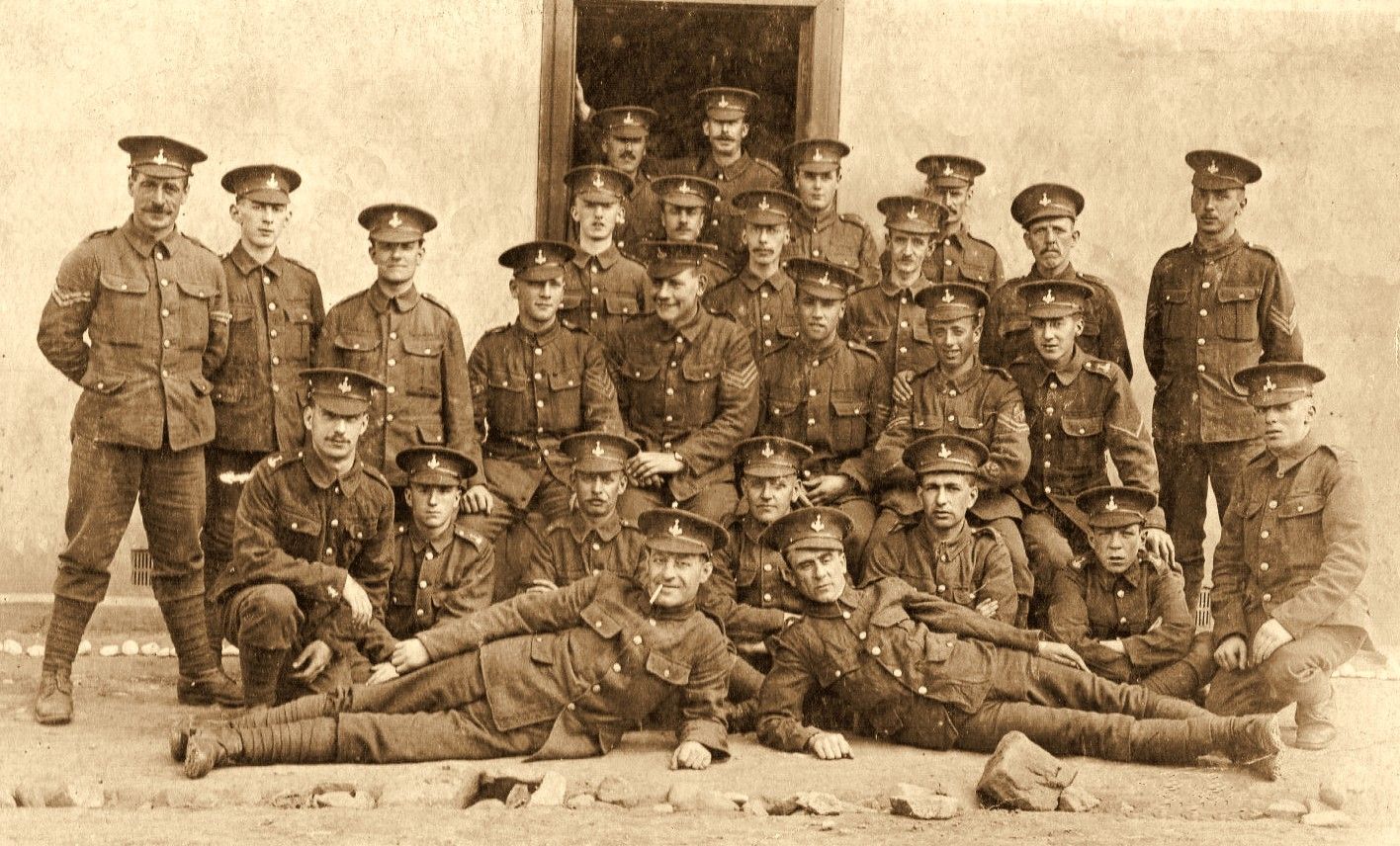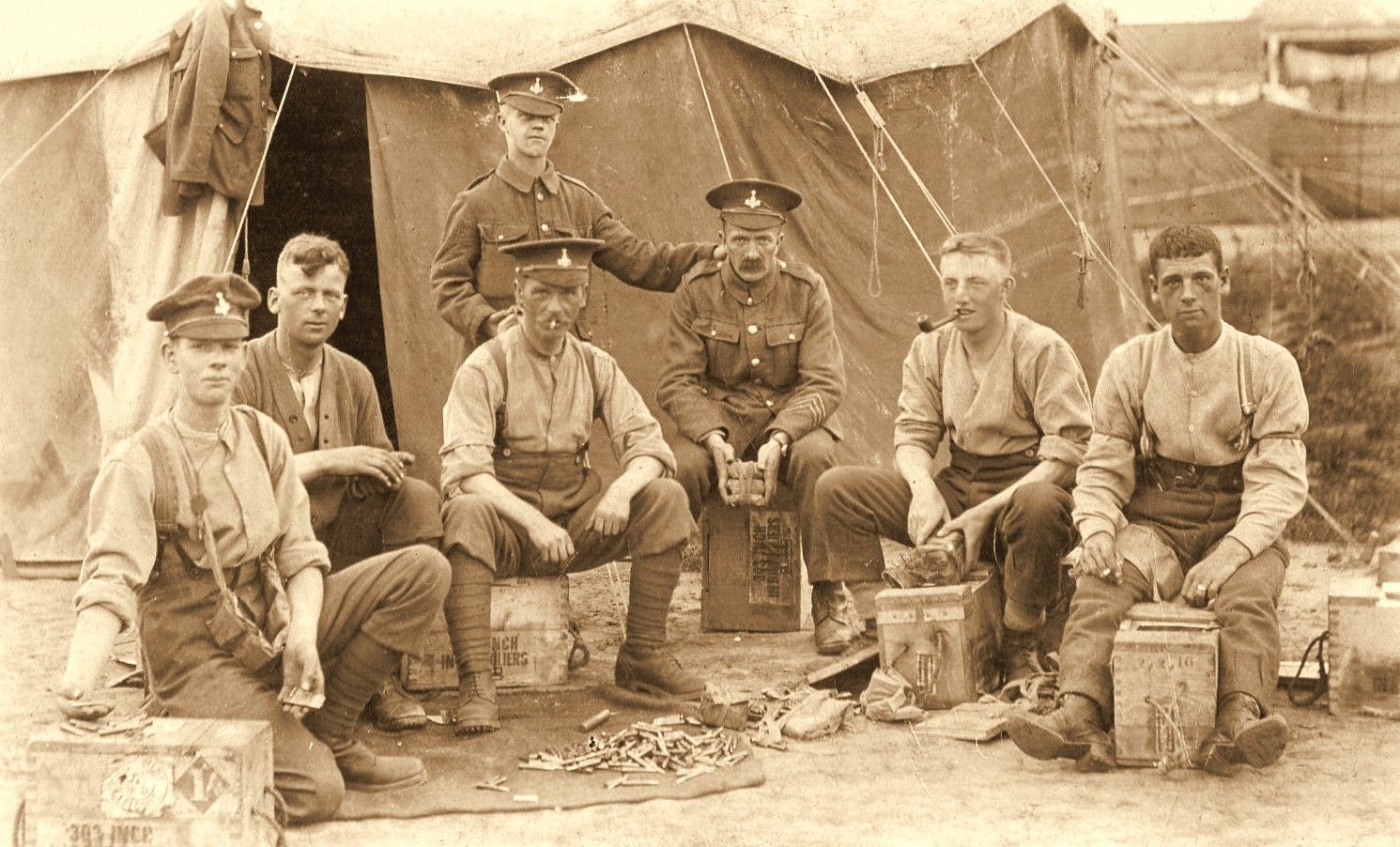202108 L/CPL PERCY GARNER, PRISONER OF WAR
AMPUTEE WITHOUT ANAESTHETIC.

|

|
The following story and images have been kindly contributed by Percy's Grandaughter, Catharine Tarrant.
They reveal details about how some wounded prisoners were treated by the Germans, the means of communicating with their families back in the UK, the long, agonising wait for news and prisoner exchanges of the badly wounded.
In the Spring of 1918, the Germans, greatly reinforced by Divisions no longer needed on the Eastern Front, as a result of Russia withdrawing from the War, made one last great effort to reach their ultimate objective the Atlantic
and Channel seaboard.
The present World would have been a different place if the Kaiser had succeeded. A D Day would have been impossible back then.
The German advance on the Somme in March 1918 had taken back all the area lost in the fighting of 1916 and nearly reached Amiens, before it was halted.
The 1/4th Yorks Battalion and the entire British forces had suffered many losses and needed urgent reinforcements. Many would be lads who had never experienced battle conditions.
In April the men of the 4th Yorks Battalion were sent to the area of the River Lys, to the West of Armentieres, where the next German offensive was to take place.
[See the Battalion Diary Page 56.]
|

Percy Garner, lower left in doorway is only man identified.
|
The 4th Yorks Battalion had started the War as a group of local East Cleveland Territorial Volunteers, but by this time most had been killed, wounded, gassed or suffered Trench ailments.
The initial enthusiasm for the War had long waned and conscription had been brought in, extended by the Military Service Act of 7 June 1916 to all men between 18 and 41.
It was at this point in the 4th Battn story, that L/Cpl Percy Garner's known War record begins.
He had been born on the 9th June 1892, in Blackley, a village east of Manchester, the son of a Blacksmith.
7th June 1916
Percy was enlisted in the 4th Yorks Battalion.
In 1911 at the age of 19, he had been a Grocer's Assistant.
By the time he was called up he was married with a son, Leonard, born in 1915.
With the terrible reports of death and wounds coming from the Western Front and a young family, it is not surprising that lads like him no longer volunteered.
They went through some hard training with the aim of transforming them from peaceful civilians into men who could shoot a rifle well and bayonet to death another human at close quarters if necessary.
The first record of Percy in France is in March 1918.
It is as yet unknown what happened to him between his date of enlistment in 1916 and this time, although his discharge papers show that he was awarded 2 blue chevrons, which
would seem to indicate he went before August 1916.
|

Percy Garner, second from Right, is only man identified.
|
9th April
The German offensive opened on the Lys. In the face of superior numbers, the 4th Yorks Battn were driven back with the entire British forces and the loss of many men. [See diary]
10th April
Percy Garner was wounded by a bullet in the knee and shrapnel in the shoulder.
Unable to move, he was left behind and lay for 8 hours with many other dead and wounded.
He was lucky that the fighting had advanced.
Many who surrendered or were captured in the trenches on both sides were shot, sometimes by official order, as prisoners were an inconvenience and impossible to deal with in the heat of battle.
Percy was taken prisoner and presumably stretchered to a German casualty station in the field. During the following week he was transported some 550 kilometres to the German Prisoner of War Camp at Limburg, about 30k North East of Frankfurt.
16th April
He completed the following Camp card.
|
A German surgeon told him that that he would die if his leg was not amputated above the wounded knee.
He was not operated on until the 21st of April and you would assume that by then his injury had become gangrenous.
He was told that the Germans did not have any form of anaesthetic, but Percy told them to get on with it.
He must have been hospitalised for some time.
18th April, 11th and 18th May.
Percy sent the following 3 cards back home.
|
31st May.
His wife, Isabella received notification from Infantry Records, York that Percy was a POW.
|
4th and 6th June.
Isabella wrote back and received the following reply.
|
23rd and 29th June.
Percy sent the following letters.
|
3rd August.
Percy received his first letter from Isabella, almost 4 months since the day that he had been wounded.
Of course, many loved ones back in the UK never received anything from the many thousands who were just reported "Missing".
|
26th August.
Percy sails from Rotterdam aboard the prisoner exchange ship, the Sindoro.
|
23rd May 1919.
Percy was discharged from the Army.
|
Percy's story, unlike most, has a happy ending.
After the War he and Isabella had two more children, Stuart and Vera. He opened his own Grocery shops and is remembered as a kind and loving Father and Grandfather.
He died in a Nursing Home at Worthing on the the 15th November 1976.
|
|



